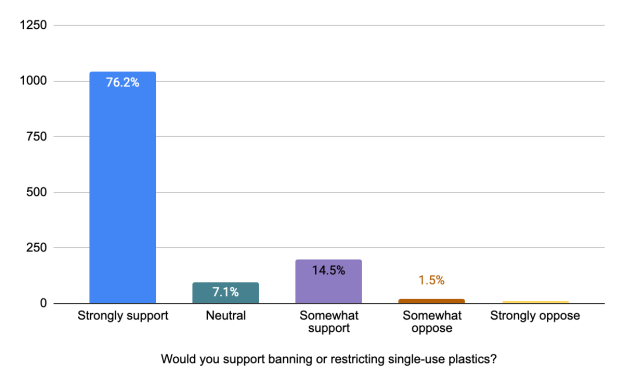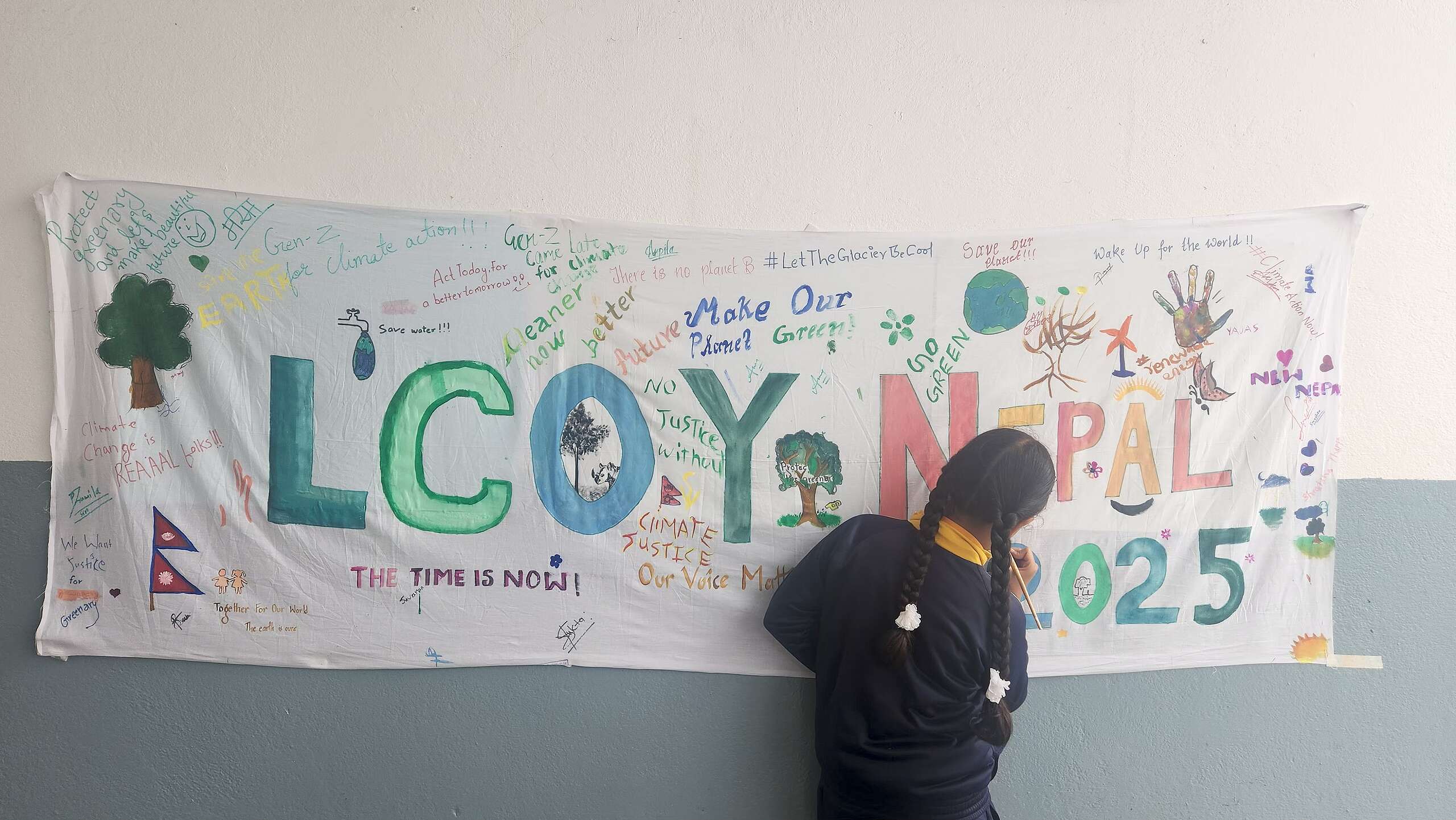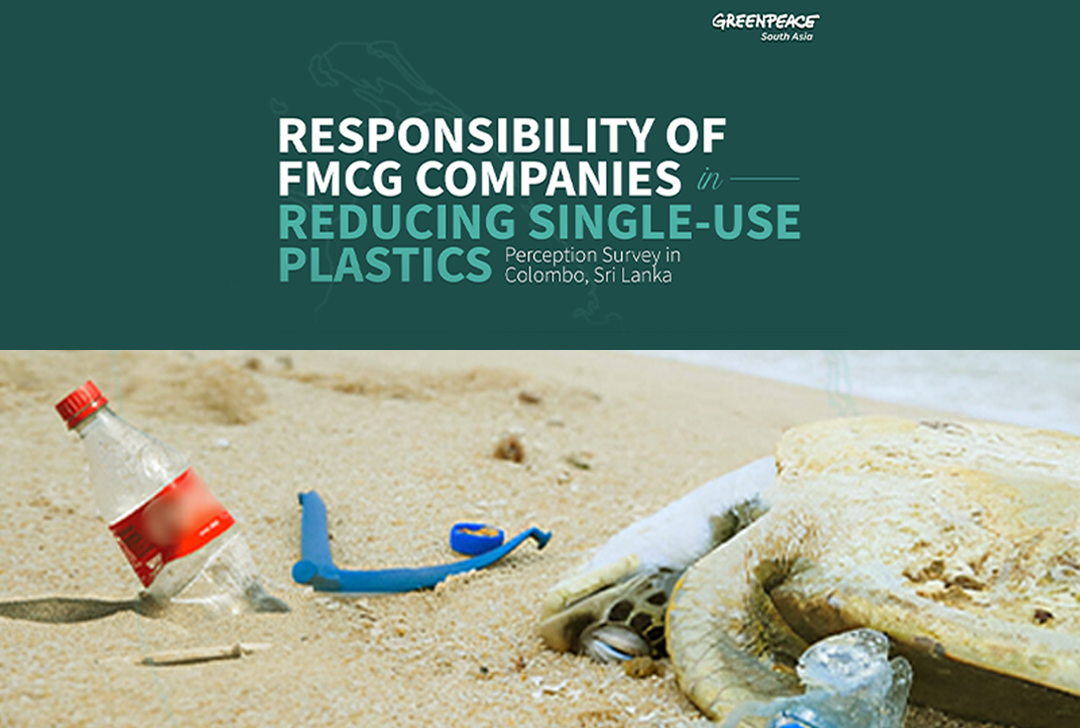A newly released report by Greenpeace South Asia, “Responsibility of FMCG Companies in Reducing Single-Use Plastics,Perception Survey in Colombo, Sri Lanka” understands the presence of single use plastics in daily lives, alarming scale of plastic pollution caused by Fast-Moving Consumer Goods (FMCG) companies and the urgent need for corporate accountability from them
The study surveyed over 1,300 Colombo residents to gauge perception on plastic usage, pollution, and the role of FMCG companies in reducing single-use plastic packaging. Despite the ban on single use plastic, more than 70% people come across single use plastic in their daily lives. The report also reveals that 93% of residents support stronger restrictions on plastic usage and demand greater accountability from corporations contributing to plastic pollution.
With global plastic production projected to reach 1,100 million tonnes by 2050, the report warns of irreversible ecological destruction unless immediate action is taken. Despite bans and corporate pledges, plastic pollution continues to rise, harming marine life, human health, and biodiversity.
“Plastic pollution has reached a crisis point, permeating every corner of our planet—from the deepest oceans to the most remote landscapes, and now inside our bodies too,” said Oshini Wijeweera, Volunteer at Greenpeace South Asia. “The devastating consequences are evident in overflowing landfills, entangled marine life, and microplastics infiltrating our food chain. FMCG companies must take responsibility and actively shift towards sustainable solutions.”
Key Findings from the Report
- Plastic Pollution Persists Despite Bans:
- 37.2% of respondents frequently, 34.2% somewhat frequently come across single-use plastics in their daily lives, despite Sri Lanka’s 2023 ban on such products.
- Microplastics found in human blood: Only 33.8% of respondents were aware of this, highlighting the need for more public education.
- 58.9% of respondents answered ‘significantly high’ about the extent to which FMCG companies contribute to plastic pollution in their opinion.
- Public Support for Action:
- 76.2% strongly support a ban on single-use plastics.
- 93.3% believe FMCG companies must be held accountable for their plastic waste.
- 58.9% of respondents answered ‘significantly high’ about the extent to which FMCG companies contribute to plastic pollution in their opinion.
- 87.4% are more likely to support brands that actively reduce their use of single-use plastic.
FMCG Companies Must Act Now
The report makes a clear and urgent call for FMCG companies to take full responsibility and immediately phase out single-use plastics.“The widespread use of single-use plastic by FMCG companies not only adds to the plastic pollution crisis but also causes widespread ecological destruction,” said Aakiz Farooq, Campaigner at Greenpeace India. “If we need to protect our oceans, we must eliminate plastics. FMCG companies need to be held accountable for the damage they are causing.”

“Single-use plastic has a devastating impact on human health, biodiversity, and the climate crisis,” added Cherika Ranasinghe, Research Coordinator at Greenpeace South Asia. “The people of Colombo have spoken loud and clear, they do not want to continue living with plastic pollution and they demand FMCG companies to take concrete actions, not just make empty promises.”
As world leaders work towards a Global Plastics Treaty, the findings of this report reinforce the need for strict international regulations to hold FMCG companies accountable and mandate a drastic reduction in plastic production.
Call to Action
We demand an ambitious global plastics treaty that will limit plastic production and use and enable just transition for people employed in the sector. A strong global plastics treaty will keep oil and gas in the ground, hold big polluters accountable for their excessive plastic production, build refill and reuse systems, and ensure transparency and a fair and equitable transition for affected workers.
“We are at a historic turning point,” added Cherika Ranasinghe. “FMCG companies have the opportunity to lead the way in tackling the plastic crisis by supporting ambitious targets at the UN Global Plastics Treaty. The time for greenwashing is over—real action is needed now.”
The time for action is now. FMCG companies must stop making empty promises and take bold steps toward a sustainable, plastic-free future.
For media inquiries and further details, please contact:
Cherika Rajasinghe
[email protected]



